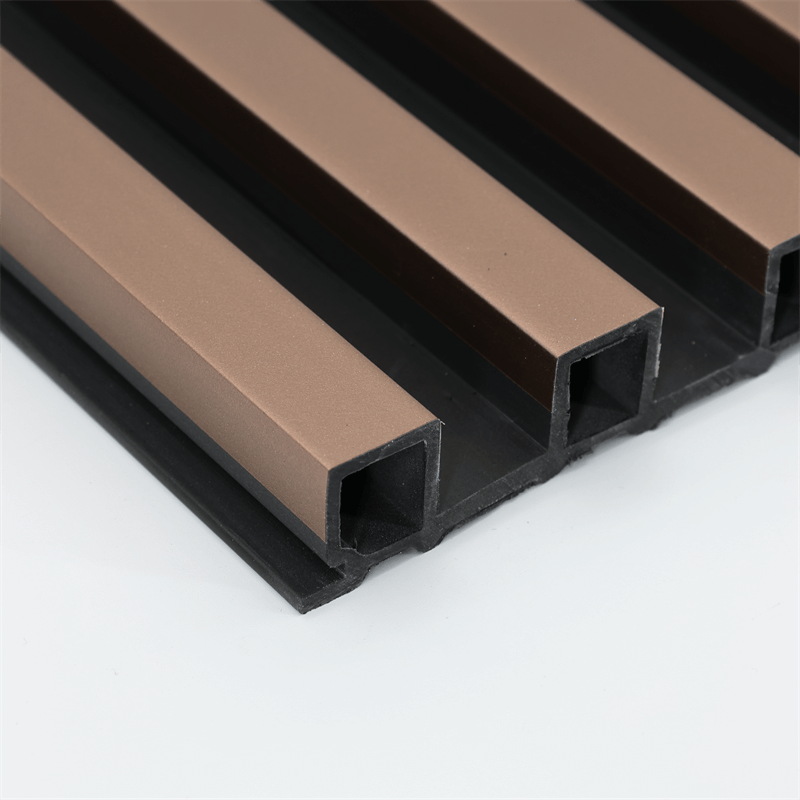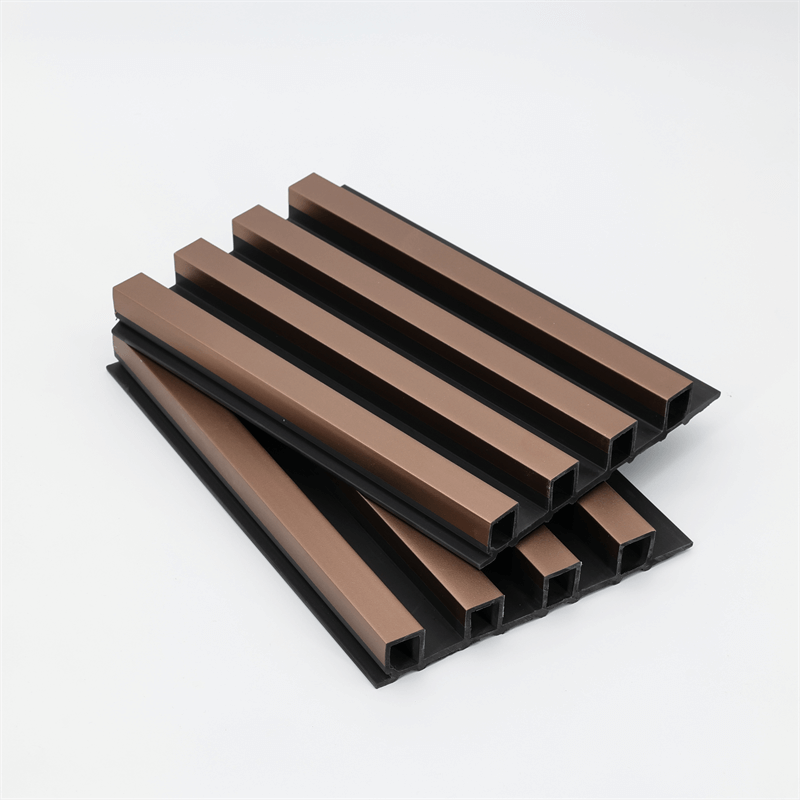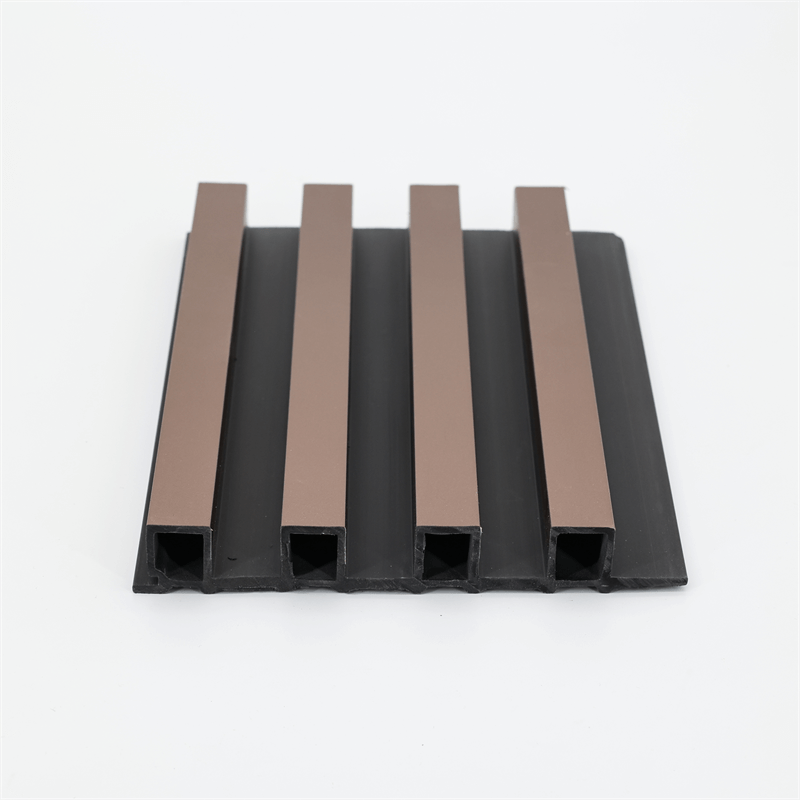Designing outdoor spaces that seamlessly blend with the natural environment has become a popular trend in modern architecture.
In this essay, we explore the use of WPC (Wood-Plastic Composite) wall panels as a means to achieve a natural and organic appeal in outdoor design.
With their unique combination of aesthetics, durability, and sustainability, WPC panels offer architects and designers a versatile tool to create outdoor spaces that harmonize with nature.
This essay will delve into the various aspects that make WPC wall panels an excellent choice for designing with nature, including their natural appearance, environmental benefits, adaptability to diverse landscapes, and promotion of a connection between human and natural surroundings.
I. Embracing Natural Appearance: The Authenticity of WPC Wall Panels
Nature-inspired designs often aim to mimic the organic beauty of natural materials.
WPC wall panels excel in this aspect by offering an authentic appearance that closely resembles traditional wood, stone, or other natural textures.
Through advanced manufacturing techniques, WPC panels capture the essence of natural materials while providing enhanced durability and resistance to weathering.
The panels can be customized to mimic different wood species, grain patterns, or even the rugged texture of stone, allowing for seamless integration with the surrounding landscape.
The result is an outdoor space that exudes a natural and organic appeal, creating a sense of tranquility and serenity.
II. Environmental Benefits: Sustainability at the Forefront
In an era where sustainable design practices are of paramount importance, WPC wall panels shine as an environmentally friendly choice.
These panels are crafted using a combination of recycled wood fibers and plastic materials, reducing the consumption of virgin resources and minimizing waste.
By opting for WPC panels, architects and designers contribute to the reduction of deforestation and environmental degradation.
Additionally, the manufacturing process of WPC panels requires less energy and generates fewer greenhouse gas emissions compared to traditional materials, further minimizing their ecological footprint.
The use of WPC wall panels promotes responsible design, allowing outdoor spaces to exist in harmony with nature without compromising on aesthetics or functionality.
III. Adaptable to Diverse Landscapes: Creating a Sense of Place
One of the key benefits of WPC wall panels is their adaptability to diverse landscapes.
Whether it’s a coastal retreat, a mountainous terrain, or an urban garden, these panels can be seamlessly integrated into any outdoor setting.
The versatility of WPC panels allows architects and designers to create outdoor spaces that reflect the natural elements and character of the surrounding environment.
For example, in a coastal landscape, panels with a weathered wood finish can evoke the charm of beachside cottages, while in a forested area, panels with a rich wood grain texture can blend seamlessly with the lush greenery.
This adaptability ensures that outdoor spaces not only complement their surroundings but also create a sense of place and belonging.
IV. Promoting a Connection with Nature: Enhancing Well-being
Designing with nature goes beyond aesthetics; it also aims to enhance the well-being of individuals by fostering a connection with the natural world.
WPC wall panels contribute to this by creating outdoor spaces that invite people to engage with their surroundings.
The natural appearance of the panels, coupled with the soothing textures and colors, creates a sense of calm and serenity, promoting relaxation and rejuvenation.
Additionally, incorporating elements such as vertical gardens or incorporating natural materials alongside the panels can further strengthen the bond between humans and nature.
By designing with WPC wall panels, architects and designers create outdoor spaces that nurture the soul and provide a sanctuary from the stresses of modern life.
WPC wall panels offer a unique opportunity to design outdoor spaces that embrace the natural world and create a sense of harmony with the environment.
Through their authentic appearance, sustainability, adaptability to diverse landscapes, and promotion of a connection with nature, WPC panels enable architects and designers to seamlessly integrate outdoor spaces with the surrounding natural elements.
By designing with nature in mind, outdoor areas can become havens of tranquility, where individuals can reconnect with the beauty and serenity of the outdoors.
With WPC wall panels, the possibilities are endless, allowing designers to create outdoor spaces that celebrate the inherent splendor of nature and inspire a deep appreciation for our natural surroundings.
Furthermore, designing with WPC wall panels not only enhances the aesthetic appeal of outdoor spaces but also contributes to the preservation and conservation of our natural resources.

By utilizing recycled wood fibers and plastic materials in their construction, WPC panels reduce the demand for virgin resources, thus minimizing deforestation and environmental degradation.
This sustainable approach aligns with the principles of responsible design, allowing architects and designers to create outdoor spaces that leave a positive impact on the planet.
Moreover, WPC wall panels offer practical advantages that further enhance their appeal in designing with nature.
These panels are highly durable and resistant to the harsh elements of the outdoors, such as moisture, UV radiation, and temperature fluctuations.
This durability ensures that the panels maintain their integrity and beauty over time, even in challenging environmental conditions.
By choosing WPC panels, designers can create outdoor spaces that not only harmonize with nature but also withstand the test of time, reducing the need for frequent repairs or replacements.
Another significant advantage of WPC wall panels is their low maintenance requirements.
Unlike traditional materials such as wood or stone, which may require regular sealing, staining, or repainting, WPC panels are virtually maintenance-free.
They do not require sealing or painting, and their surface can be easily cleaned with mild soap and water.
This low maintenance feature not only saves time and effort but also reduces the use of harsh chemicals, making WPC panels an environmentally friendly choice.
In addition to their visual appeal and sustainability, WPC wall panels also offer versatility in design. These panels can be easily customized to fit various architectural styles and preferences.
Whether it’s a contemporary design with clean lines and minimalist aesthetics or a more rustic approach with a warm and earthy ambiance, WPC panels can be tailored to achieve the desired look and feel.
The versatility of these panels allows designers to create outdoor spaces that reflect their clients’ unique personalities and enhance the overall design concept.
In conclusion, designing with WPC wall panels presents an exciting opportunity to create outdoor spaces that seamlessly blend with nature while offering numerous benefits.
The natural appearance of these panels, combined with their sustainability, adaptability to diverse landscapes, low maintenance requirements, and design versatility, make them an ideal choice for architects and designers seeking to create spaces that embody the beauty and tranquility of the natural world.
By embracing the organic appeal of WPC wall panels, designers can craft outdoor environments that not only captivate the senses but also foster a deeper connection with nature, promoting a sense of well-being and harmony for all who inhabit these spaces.


